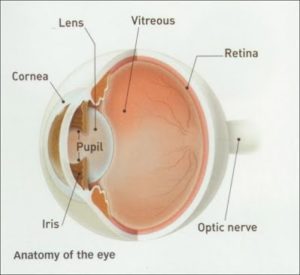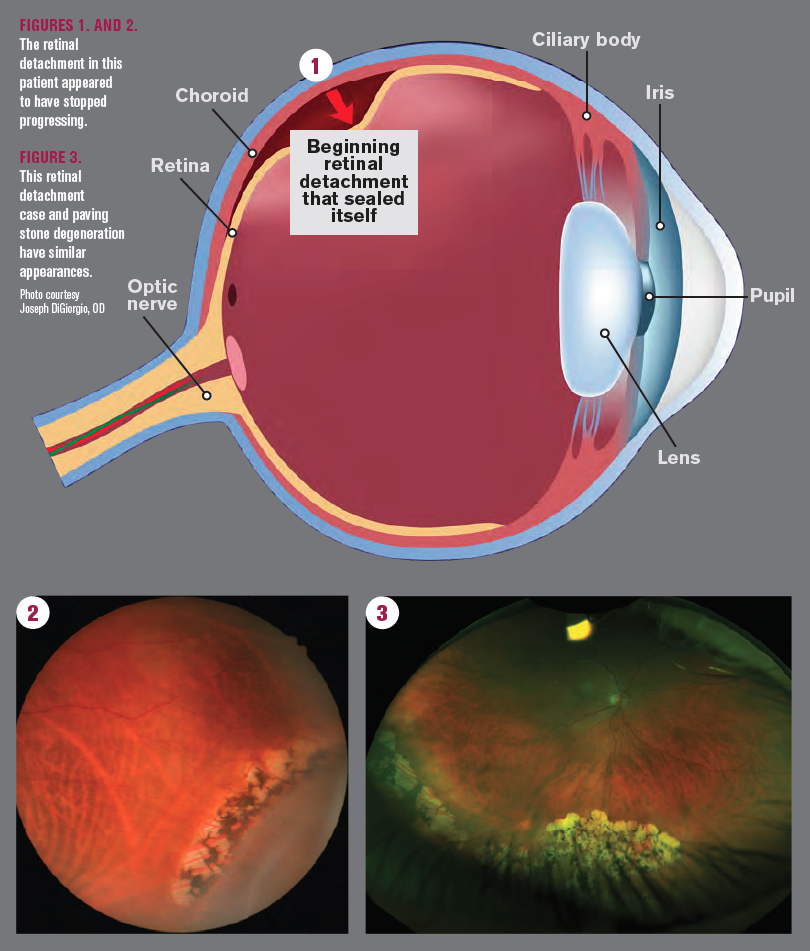
Retinal detachment can occur for any number of reasons including advanced disease diabetic retinopathy trauma a sudden blow to the head or from aging the most common cause. Virginia Mason ophthalmologists have broad experience treating patients with a torn or detached retina using the latest surgical methods to help patients retain their vision.

Toxemia of pregnancy The presence of toxins of infective organisms in blood.
Retinal tear and flying. New Insights and Future Perspectives. Publish your next article in a special collection from Journal of Ophthalmology. You can fly after getting laser treatment for retinal tear but you cant fly if you have retinal detached that is treated with intraocular injection of gas.
Most of the time retinal tears are treated by laser alone without any other intervention but sometimes if fluid starts to build up under retina intraocular injection of gas is required with laser to prevent retinal detachment. Flying is only a problem if during the repair surgery the surgeon has instilled a gas SF6 to hold the retina in place. The decreased air pressure causes the gas to expand and create a number of problems.
So your husband and you can enjoy your travels without worrying about problems to the eye. Very low likelihood. Flying or altitude do not cause retinal tears of detachments.
After retinal detachment surgery patients with gas in the eye must not fly. Yes it does. My mom just had a detachment after a flight and another person that I know had a permanent hearing loss after a flight Im pretty sure its because of the variations of pressure in the airplane as the eye and little organs are very delicate are also easy to get damaged specially when atmospheric pressure its involved as it sucks or pushes inward the eyeball or any soft tissue by.
If i think i have retinal tear is it ok to fly. MD Hello and welcome to HCM A retinal tear needs to be replaced back else the tear will increase and surgery at later stage may be difficult. Eye flashes can be a symptom of retinal detachment or retinal tears.
These are serious conditions that can damage your sight. A retinal tear is a break in the retina. A retinal detachment happens when the vitreous pulls away from the retina creates a break allowing the fluid from the vitreous can get behind the retina and cause damage to your vision.
Patients who have retinal tears or other retinal issues often have a significant increase in eye floaters which are moving dots or shapes that appear to float in the patients visual field. They may appear as cobwebs or strings of floating material that eventually drift outside of the visual field and they are often most noticeable when looking at a solid bright background such as a white wall or a blue sky. In front of the retina is the vitreous a gelatinous type of substance that is made mostly of collagen.
The vitreous helps to hold the retina in place along the back of the eye. As our eyes age the collagen can shrink or move changes that can sometimes pull at the retina tearing it. The most common symptoms of a retinal tear are flashing lights in the periphery similar to what my wife experienced.
Flying and Retinal Detachments A retinal detachment is a serious condition that requires prompt medical attention and treatment to avoid loss of vision. Retinal detachment can occur for any number of reasons including advanced disease diabetic retinopathy trauma a sudden blow to the head or from aging the most common cause. An absence of folds tears or holes differentiates it from a primary retinal tear.
Causes For Exudative Retinal Tear Are. Toxemia of pregnancy The presence of toxins of infective organisms in blood. Polyarteritis nodosa Inflammation of medium-sized arteries.
Cancer tumors and other diseases of the eye. Exudative retinal tear due to. This scar tissue helps seal the tear or reattach a detached portion of retina to underlying tissue.
With retinal tears the procedure prevents fluid from traveling underneath the retina where it can cause detachment. After this relatively painless procedure your surgeon may administer a topical steroid to prevent inflammation. Restrictions regarding flying after retinal detachment surgery are due to the medical device gas that is injected into some patients eyes to encourage the retinal reattachment process.
This gas might expand when the atmospheric pressure drops as is the case at high altitudes leading to an increase in intraocular pressure and as a result damage to the optic nerve. No flying cant cause retinal detachment. If you had retinal detachment before you should pay attention.
When the plane takes off or land you should fasten your seat belt to avoid your head shakes badly and lead to retinal detachment. Retinal detachment is usually caused by high myopia or external injury. Hold your head in a certain position for a few days to a few weeks to keep the air bubble in the right spot.
Avoid flying in an airplane or traveling to high altitudes while the bubble is in your eye. Ask your doctor how long you need to keep doing these things after surgery. There is no risk associated with flying if you have floaters or flashes.
The only time it may not be safe to fly is if you have had retina surgery and have a gas or air bubble in your eye following the surgery. Rapid change in air pressure can affect the gas or air bubble but it. When the vitreous gel inside your eye rubs or pulls on the retina you may see what looks like flashing lights or lightening streaks.
If you notice the sudden appearance of flashes you should visit your ophthalmologist immediately because it could mean that the retina has been torn. The recovery period lasts at least 1 week for laser surgery to correct a retinal tear while patients who undergo cryotherapy another treatment for retinal tears have a recovery time of up to 2 weeks explains Williamson Eye Institute. Most tears of the retina require some form of treatment.
You cannot fly in an airplane or drive above 1000 feet elevation if you have an air or gas bubble in your eye. Talk to your doctor about the duration of this restriction. When can I shower and wash my hair.
You may shower or bathe when you get home but avoid getting water in your eye during the first 2 weeks. A retinal tear or detachment is a serious condition that requires prompt medical attention and treatment to avoid loss of vision. Virginia Mason ophthalmologists have broad experience treating patients with a torn or detached retina using the latest surgical methods to help patients retain their vision.
New Insights and Future Perspectives. Publish your next article in a special collection from Journal of Ophthalmology.